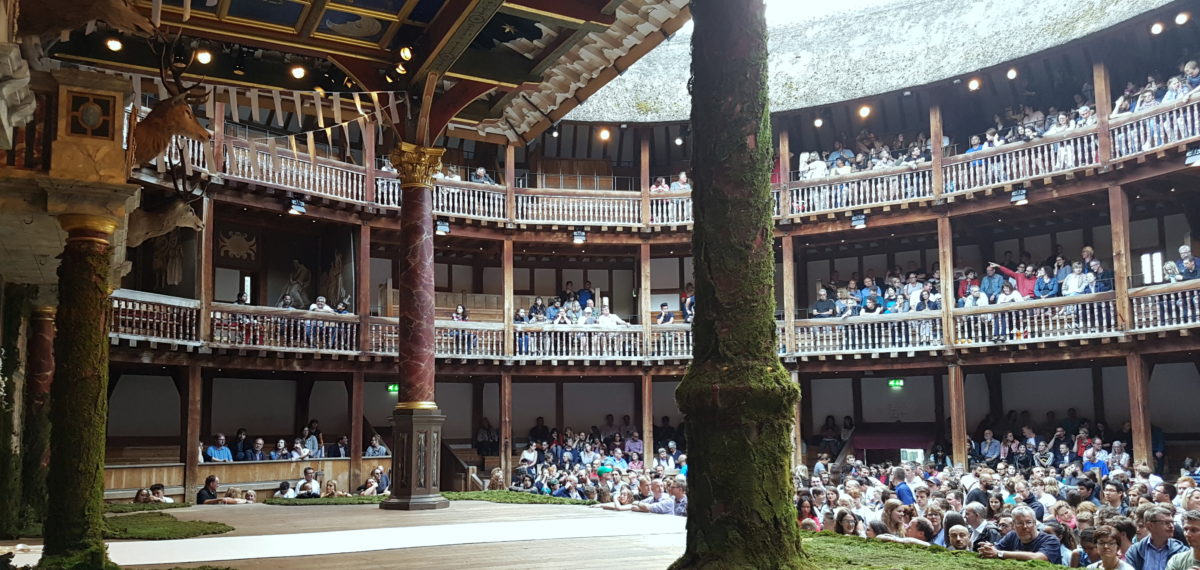Subject Introduction: English theatre came of age at a surprisingly early period. The first purpose-built playhouse was constructed in London in 1576 and within just two decades William Shakespeare was producing some of his greatest plays. With experience as historic consultant for Nottingham Shakespeare Company, professional involvement with the Shakespeare400 memorial and a lifelong personal interest* in the subject, these lectures are based on a deep love and understanding of play-going in the sixteenth and seventeenth centuries.
* To date I have seen 37/38 of Shakespeare’s acknowledged plays – if anyone hears of a production of Henry VIII/All is True then please do get in contact to let me know when and where it’s being staged!

Scandal, Skulduggery & Shakespeare: The Archaeology of Early Modern Theatre-going
Theatre-going in sixteenth and seventeenth century London was a very raucous affair. Whilst we may be used to the quiet, polite and sedate experience of watching a Shakespearean play in a warm and comfortable modern theatre, early modern audiences were had entirely different encounters. Drawing upon modern archaeological research into the candle-lit theatres and open air playhouses of London, this talk looks at the physical evidence for the architecture, lifestyle and experience of the players and play-goers at the time of Kit Marlowe, Ben Jonson and Will Shakespeare…

“A few disputations with you, as partly touching or concerning the disciplines of the war” – William Shakespeare, Henry V and the manipulation of history
Contrasting real history with Shakespeare’s play on the life of Henry V, this lecture looks at aspects of the true story of the battle of Agincourt which are often overlooked such as Henry V’s piously brutal character and the atrocities carried out his army in Normandy. The background of Shakespeare’s writing is explored to demonstrates how the Bard was in fact telling the tale of 1590s Ireland rather than the fifteenth century war in France. Finally it looks at modern day portrayals of the play set against the background of recent wars.

